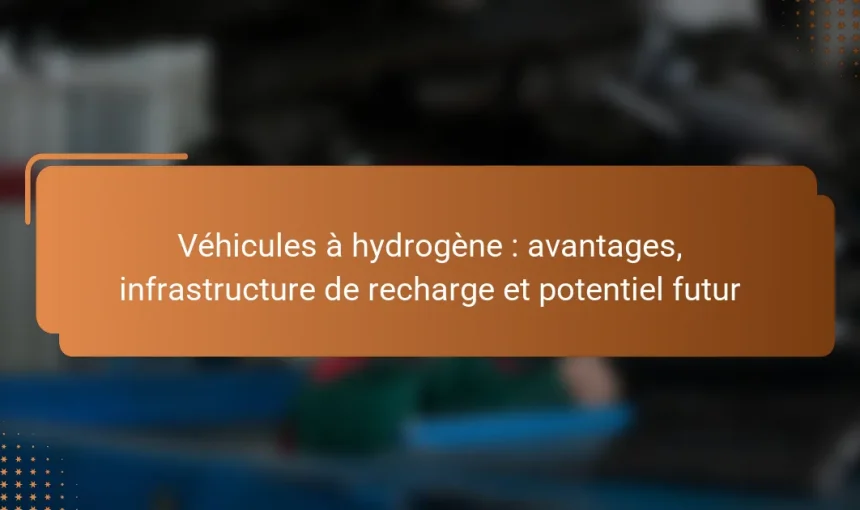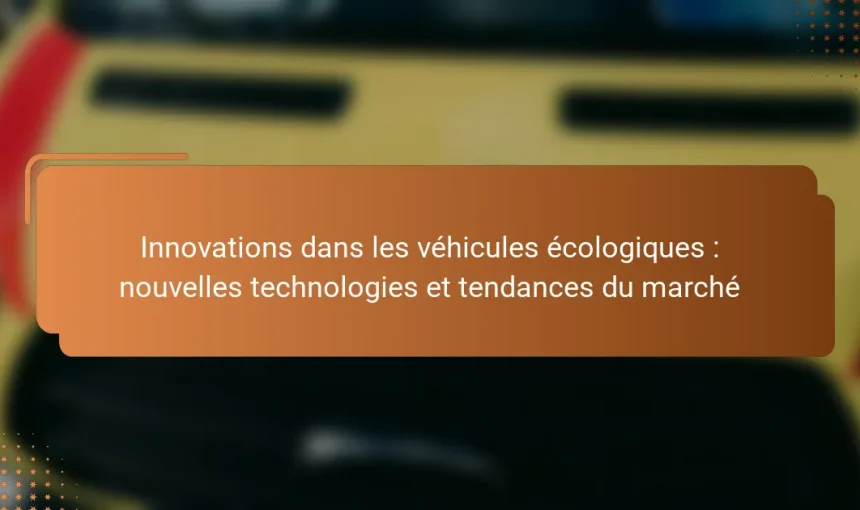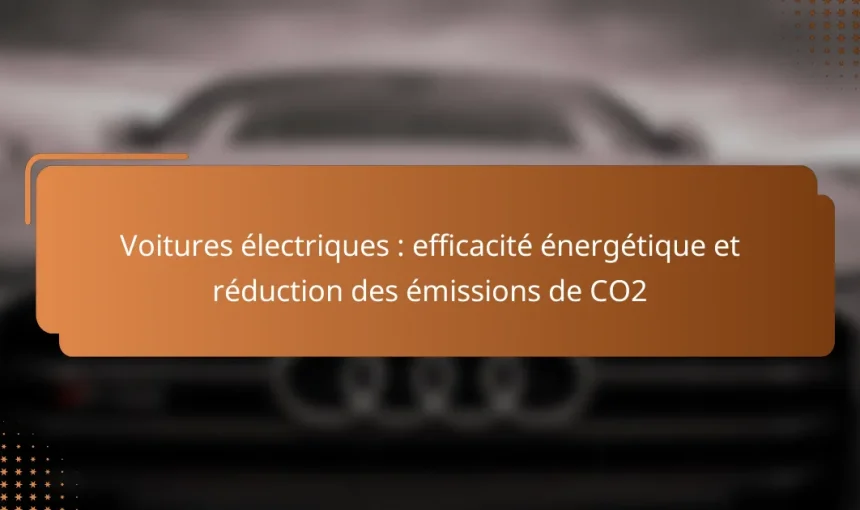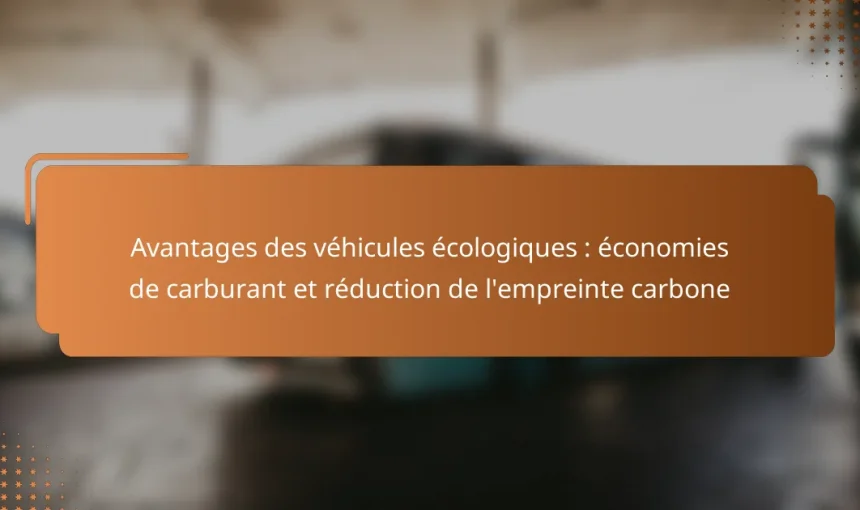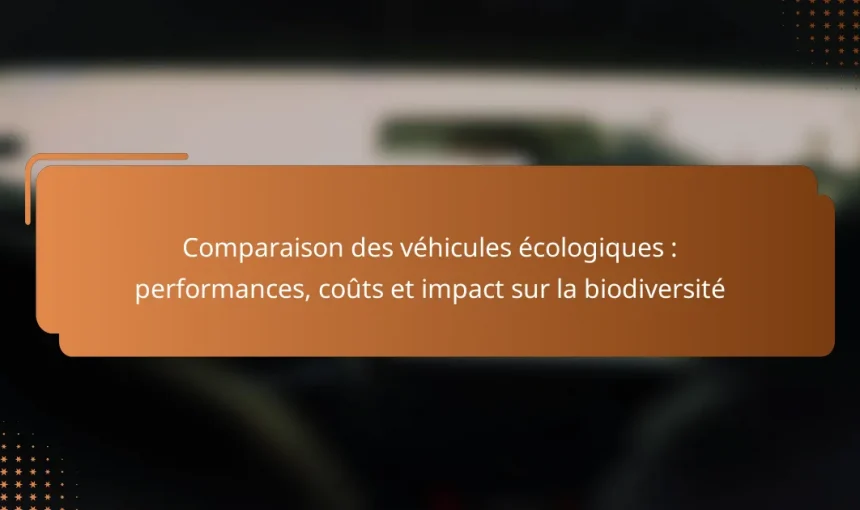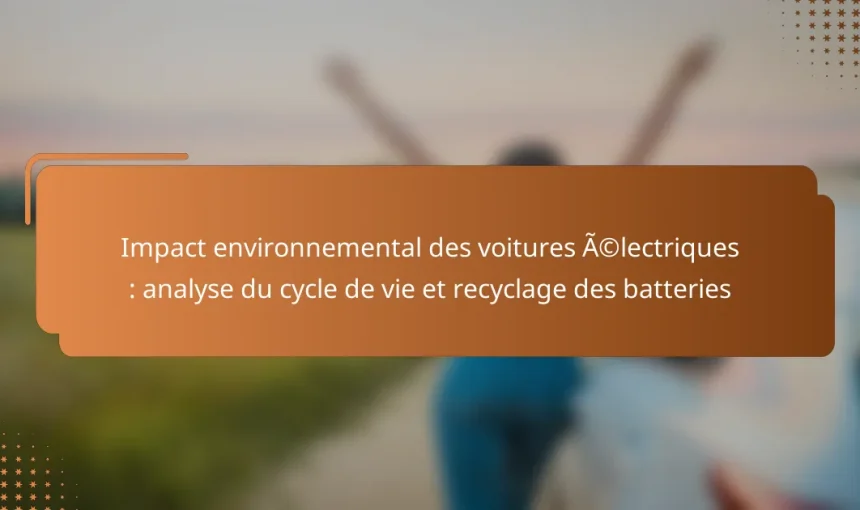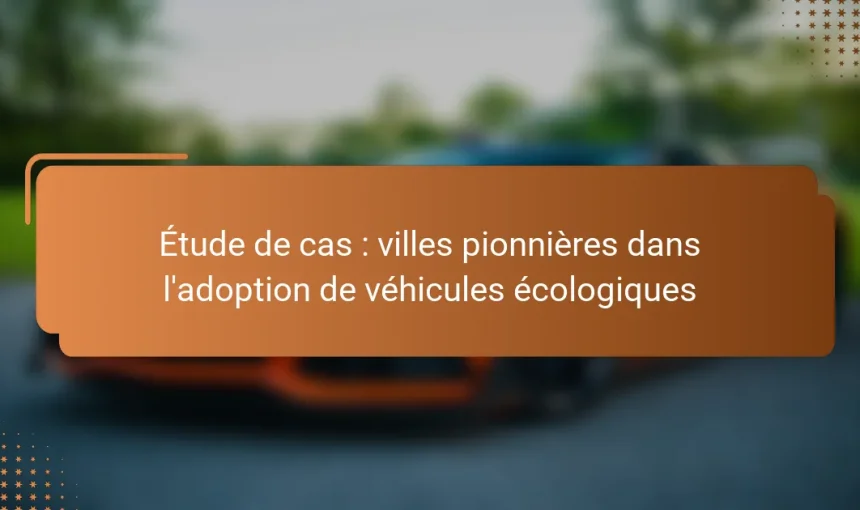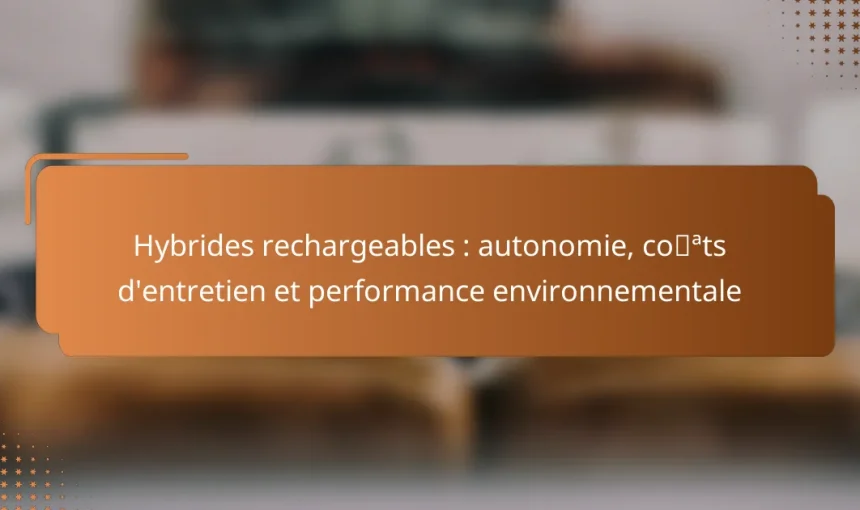Hydrogen vehicles are automobiles that utilize hydrogen as their energy source, operating through hydrogen fuel cells that convert hydrogen into electricity to power an electric motor. Prominent models in this category include the Toyota Mirai, Hyundai Nexo, and Honda Clarity, all of which emit only water vapor as a byproduct and can achieve a driving […]
The article focuses on innovations in eco-friendly vehicles, highlighting advancements in battery technology, electric motors, and charging systems. Key developments include enhanced lithium-ion batteries for greater range, efficient electric motors that reduce CO2 emissions, and rapid charging solutions that minimize wait times. The growing market for electric vehicles (EVs) is driven by increased consumer demand […]
Electric vehicles (EVs) are automobiles powered by electric motors and batteries, eliminating the need for fossil fuels. They significantly reduce carbon dioxide (CO2) emissions, contributing to improved air quality and environmental sustainability. According to the French Agency for Environment and Energy Management (ADEME), EVs emit, on average, 60% less CO2 over their lifecycle compared to […]
Ecological vehicles, including electric cars, hydrogen-powered vehicles, and those using biofuels, provide significant benefits such as reduced greenhouse gas emissions and improved air quality. They can decrease CO2 emissions by up to 50%, leading to better public health outcomes and lower healthcare costs associated with air pollution. Additionally, these vehicles offer substantial fuel savings, with […]
The article focuses on the comparison of ecological vehicles, specifically evaluating electric, hybrid, and hydrogen models based on performance, purchase and maintenance costs, and their impact on biodiversity. It highlights that electric vehicles emit 50% less CO2 than gasoline vehicles and can significantly reduce greenhouse gas emissions by up to 70%. The discussion includes the […]
Electric vehicles (EVs) significantly impact the environment by reducing greenhouse gas emissions and air pollution compared to combustion engine vehicles. However, the production of EV batteries involves the extraction of rare resources like lithium and cobalt, which can harm ecosystems. Analyzing the life cycle of electric vehicles involves examining stages such as raw material extraction, […]
The article focuses on pioneering cities in the adoption of eco-friendly vehicles, specifically highlighting Oslo, Amsterdam, and San Francisco. Oslo has implemented tax incentives for electric vehicles, while Amsterdam boasts an extensive network of charging stations and promotes electric bicycles. San Francisco has invested in sustainable transport infrastructure and encourages low-emission vehicle usage. These cities […]
Qu’est-ce qu’un hybride rechargeable ? Un hybride rechargeable est un véhicule qui combine un moteur à combustion interne et un moteur électrique. Ce type de véhicule peut être rechargé via une prise électrique. Il fonctionne à la fois avec de l’essence et de l’électricité. Les hybrides rechargeables offrent une autonomie électrique significative, souvent entre 30 […]
Electric vehicles (EVs) in urban environments are battery-powered cars that produce zero greenhouse gas emissions during operation. They play a significant role in reducing air and noise pollution, with studies indicating a potential 50% decrease in noise levels compared to internal combustion vehicles. The adoption of EVs not only mitigates harmful emissions, potentially reducing CO2 […]
French ecological vehicles are designed to minimize environmental impact, including electric, hybrid, and hydrogen cars that emit little to no greenhouse gases. These vehicles contribute to improved air quality and public health by reducing harmful emissions, which are linked to respiratory diseases and premature deaths. Incentives such as tax credits in France promote the adoption […]
